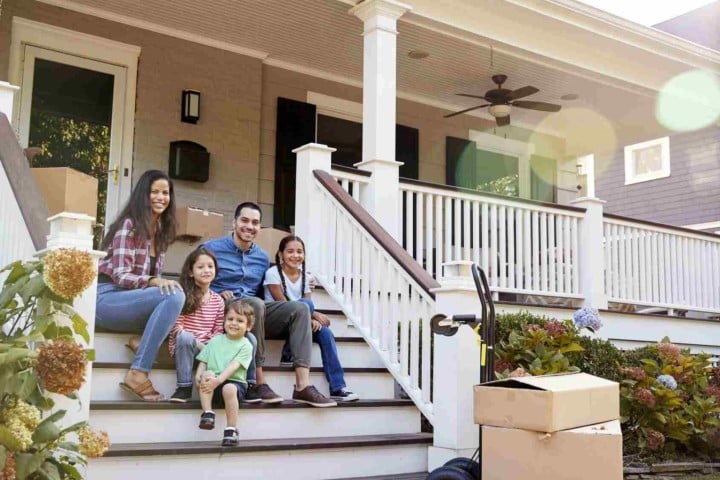
One of the most compelling yet challenging milestones some people experience at least once in their lives is moving to a new residence. Whether you’re relocating for work, school, a relationship, or to reset and restart your life, the moving process can be quite overwhelming. You’ll need to decide on numerous factors before you even pack your things and go. These may include finding your new home or apartment, getting a job closer to your new address, searching for new schools for your kids, if you got any, and, of course, seeking the right neighborhood. Before plunging into the unknown, here are 10 things to consider before moving to a new neighborhood.
It’s not only your new home that’ll matter during the whole moving process. The neighborhood will also be an essential part of your life. Your neighborhood will be the community and environment in which you and your children will grow into. The status of your neighborhood can also affect your living experience, as well as your lifestyle. Thus, it’s safe to say that choosing the right neighborhood is a crucial element of any moving process.
1. Cost Of Housing
Before thinking about the whole neighborhood, you first need to consider the cost of housing. After all, the house is, most probably, the main reason you’re moving in a particular area in the first place. So, try to assess and compare your potential new housing to your current housing situation. See if there are significant differences in terms of mortgages, cost of rent, or housing availability. You also need to assess if you’re planning to buy a house or rent one, and see if the price fits your budget.
Once you’ve figured out the housing cost and finalized your decision to move to that particular residence, this may be the right time to start planning your moving process. You may begin contacting moving company services, like the Big Boy Movers, and ensure to include their fees in your moving budget.
2. Cost Of Living
The next thing to consider is the cost of living. You may love the new house you’re planning to buy or rent. However, you also need to ensure that you can keep up with the cost of living that goes with it, especially if you’re planning to live there for many years.
The cost of living may include:
- Gasoline prices
- Average grocery costs
- Average school tuition
- Car maintenance costs
- Electricity expenses
- Water costs
- Parking fees
Many homeowners are too centered on the price of their homes that they tend to forget how most of their spending is used for the neighborhood and the living facilities. So, before finalizing your decision to live in your chosen area, it’s helpful to do your research first and calculate the overall livability score of the place. The more you’re aware of your potential neighborhood’s cost of living, the easier it’ll be for you to plan your budget in the future.
3. Safety And Crime Rate
Some people are enticed to move into a new residence because of its character, culture, and the amazing vibe it exudes during daylight. While these may all sound good, make sure you’re not compromising your safety. Appearances can be deceiving, and some states may look safe and attractive during the day. Still, you may never know how dangerous some parts of the town can be, especially at night. An unsafe and dangerous neighborhood is simply not worth the risk, regardless if you’re moving alone, or you’re moving with your kids and family.
To get an accurate report of the crime rates and overall safety ratings from your potential neighborhood, you can contact the city hall or the police station for more information. They can give you specific details about crimes that may have been reported in the past. Aside from that, it’s also a good idea to have a quick drive around the neighborhood and observe secluded roads that can be suspicious or dangerous for you and your kids to cross or pass into.
If you know of anyone, like a colleague, friend, or a relative, who knows the area well, you can ask them about the peacefulness of the place and how it’s like during the day and night. The best thing you can provide for yourself and your kids is a community that offers safety, security, and freedom to go for an evening stroll, without constantly worrying about your back.
4. Weather Conditions
The climate and weather conditions of the neighborhood are enough to make or break your decision about moving there. Some people can tolerate all climate seasons, while some are trying to get away from winter and hope to find somewhere sunnier and hotter.
If you wish to save money from high electric bills and utility payments, it may be ideal to move somewhere with a moderate climate and fewer winter months.
Aside from the climate, it’s also essential to do some research about the area’s probability of experiencing storms, hails, landslides, tornadoes, or even volcanic eruptions, if your new neighborhood is near an active volcano. Discuss this with your family and see what they need and can tolerate.
5. Good-Quality Schools
Whether you have kids or are still planning to have some in the future, make sure to consider the place’s educational system. Many parents tend to put schools as one of the priorities when relocating as the choice of school can significantly affect their children’s growth and development.
So, when planning to relocate, check if the schools in the area are reputable. Moreover, try to see if they’re offering higher education opportunities and have many extracurricular activities that fit your child’s interests. It’s also important to inquire about the school’s safety and amenities. All these can affect your decision towards finding the right neighborhood.
6. Good Access To Public Transportation And Commute Time
If you don’t have a car, or, perhaps, your teens and young adults don’t have driver’s licenses yet, having good access to public transportation is very crucial. Since you intend to rely on public transit, you need to ensure that your new neighborhood offers various transportation options, such as taxis, buses, and trains. If you intend for your teens to bike their way into their schools, it’s also vital to see if the new place has available bike lanes for your children’s safety.
Besides having good access to public transport, it’s also essential to consider the commute time. The last thing anyone would want is to sit in traffic for an hour or more, only to be late for school or work. Thus, it would be helpful to conduct a test drive and see how long it takes to get to work or school, and vice versa. In case all public transport options take too long to get you to your workplace, you may want to consider other options.
7. Local Amenities
Many homeowners rely on the local amenities within their respective neighborhoods, especially if they don’t have a car to drive to distant establishments. You can create a list and write down all the local amenities that are very important for you, such as a supermarkets and grocery stores, health clinics and hospitals, post office, pharmacies, restaurants, coffee shops, airport or seaport, and library, among many others. Knowing what is and isn’t available in your potential neighborhood can help you decide if you wish to settle down in the area or consider other options.
8. Leisure And Sports Facilities
For people keen on sports and other leisure activities, you can do your research about the neighborhood’s available facilities, such as a fitness gym, a bowling center, and other sports clubs you wish to sign yourself into. If you’re into leisure, see if your new residence is close to a massage shop, manicure and pedicure salon, and even tanning salons. Whichever sports or leisure activity you may wish to engage in, all these can be a great way to fit yourself into the new neighborhood and make new friends.
9. Personality And Vibe Of The Neighborhood
Your neighborhood can have its own personality and vibe, too, almost like people. Some neighborhoods tend to be fun, welcoming, and exude vibrant energy, especially if most residents are from the newer generation. Meanwhile, if you’re planning to move into a neighborhood filled with the older generation, expect that it won’t be as vibrant and energetic as the former option. But, how can you be sure?
Take a trip and visit your future neighborhood for a better feel of the neighborhood’s vibe and personality. See if it has lots of bars, an active nightlife, and lively coffee shops around. Check if it also has its own movie theatre, circus shows, amusement parks, and theme parks for your children. Some people love navigating busy streets and crowded areas. On the flip side, if you want a quieter and less chaotic neighborhood, you may check if the neighborhood offers less of the mentioned items above, and more on libraries, art galleries, or museums.
10. Possible Noise And Construction Sites
Aside from the vibe of the people and place, it’s also important to consider if the neighborhood is prone to long-term construction sites. Construction sites tend to be noisy, disruptive, and, sometimes, even unbearable, especially if you’re a work-from-home parent or homeschooling your children. So, as you drive into your new neighborhood, try to check how noisy the place can get, especially during peak hours. You also need to determine how much noise you and your family can tolerate.
Wrapping It Up
Finding the best neighborhood can be your way to providing a better community and life for yourself and your family. Let the list above help you make good decisions and bring you closer to your ideal living environment.
If you are planning you next move, more suggestions can be found on this page: Most Common Moving Mistakes
Have Experience in the Moving Industry? Want an Additional Income Stream? Work With All Around Moving!
Adding a new revenue stream to you, moving relocation consultants, is a great method to increase earnings. Every step of the journey, we’ll be there for you Click here to learn more.






